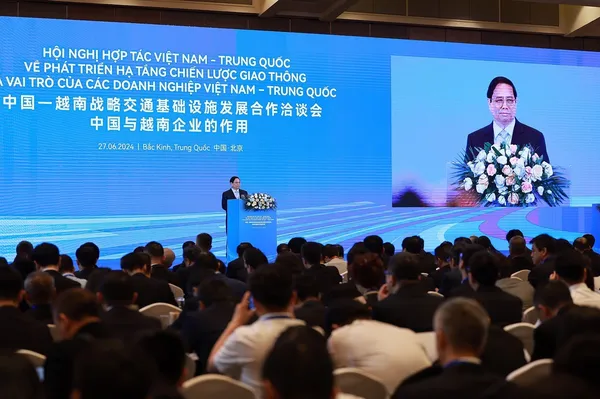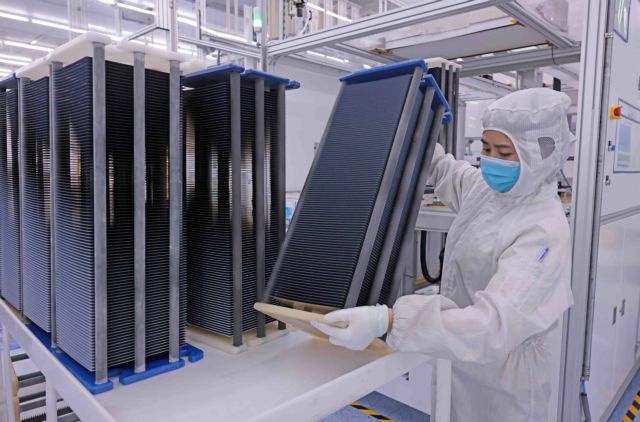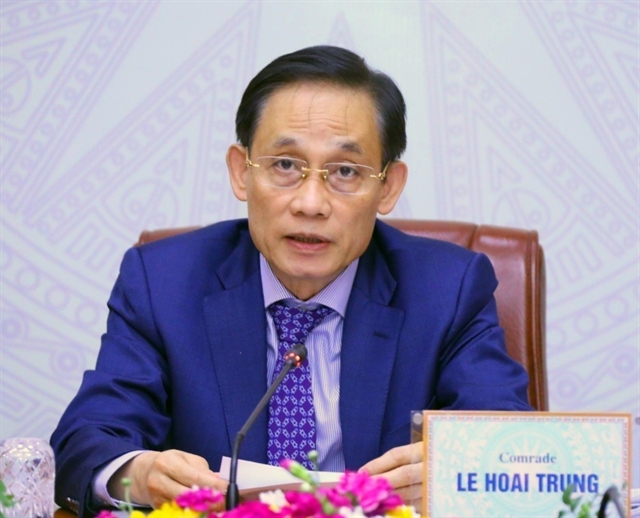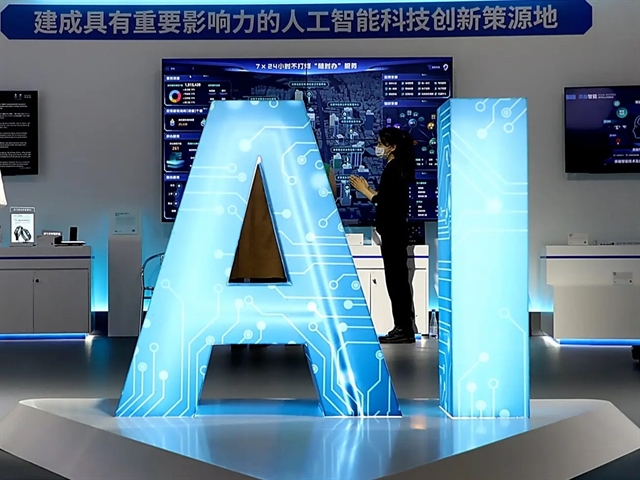 Politics & Law
Politics & Law

 |
| Production at a factory of the Chinese solar energy company Trina Solar in Thái Nguyên Province's Yên Bình Industrial Zone. In 2023, Chinese enterprises registered to invest $4.5 billion in Việt Nam, a year-on-year increase of nearly 80 per cent. VNA/VNS Photo Trần Việt |
HÀ NỘI — Việt Nam has seen a strong investment inflow from China, with the presence of many international corporations in various fields including technology, electronics and renewable energy.
Last month, a delegation from China's Sunwoda Group visited the northern province of Bắc Giang to seek further investment opportunities. General Director of the firm Xiang Hai Biao said that Sunwoda plans to build a US$300-million factory in the locality to produce electronic components.
Sunwoda is not the only Chinese enterprise to show an interest in Việt Nam. Last year, a delegation of Chinese businesses came to northern Hải Phòng City to discuss a variety of possible investment projects.
In early August, within the framework of a trade promotion programme in China, Hải Phòng leaders presented investment licences to a series of projects worth nearly $200 million. Many MoUs (Memoranda of Understanding) were also signed for investment cooperation for other large-scale projects.
This reflects the recent trend which has seen investment from China pouring into Việt Nam, especially since China decided to lift the COVID policy in early 2023. Statistics from the Ministry of Planning and Investment showed that in 2023, Chinese enterprises registered to invest $4.5 billion in Việt Nam, a year-on-year increase of nearly 80 per cent.
In the first seven months of this year, the figure hit nearly $1.65 billion, which is a positive figure despite a decrease compared to the same period last year. In terms of capital, China ranked fourth among the countries and territories investing in Việt Nam in the January to July period. However, the country topped in the number of new projects, which accounted for 29.7 per cent of the total.
Along with traditional areas, over the recent years, Chinese firms, including those from Taiwan and Hong Kong, have invested in large-scale projects in technology and electronics in Việt Nam, evidenced by the presence of BYD, Goertek and Foxconn.
Minister of Planning and Investment Nguyễn Chí Dũng held that the quality of Chinese investment in Việt Nam has been considerably improved. In the past, Chinese-funded projects were mainly in the fields of textiles and footwear, but now they have been expanded to the fields of technology, electricity and electronics.
Earlier this year, Victory Giant Technology Group decided to invest in a project to research, develop, produce and trade high-precision circuit boards, with an investment capital of more than $800 million in Bắc Ninh Province. Meanwhile, BYD Group is still continuously expanding its investment in electronic component manufacturing. Currently, BYD's Phú Thọ factory is producing components and accessories for Apple.
At the same time, Runergy Group is working on a $440-million project in the production of semiconductor components, including silicon bars and semiconductor wafers in Nghệ An. Runergy plans to increase its total investment capital in Việt Nam to $1.2-1.4 billion. Power China, China Rare Earth Group and Haosen Electronic Battery Company are also among the Chinese enterprises planning new investment projects in Việt Nam.
Việt Nam welcomes Chinese investors in the fields of high technology, renewable energy, supporting industries, electronic components, electric cars, electric batteries, essential infrastructure, international financial centre building, green finance, smart cities, ecological industrial parks and free trade zones. These are industries that China is strong in and Việt Nam has demand and development potential, the minister said at a seminar with Chinese businesses.
In his visit to China in June, Prime Minister Phạm Minh Chính met with many large firms of China and called for their investment in transport infrastructure, urban railway projects and high-tech entities in Việt Nam.
Minister Dũng expressed his hope that Chinese firms will promote the technology transfer and help Vietnamese businesses enhance their production capacity and engage more deeply within the global value chain.
The growing depth of Việt Nam-China relations is considered a favourable condition for Chinese high quality investment to continue its strong flow into Việt Nam. — VNS




